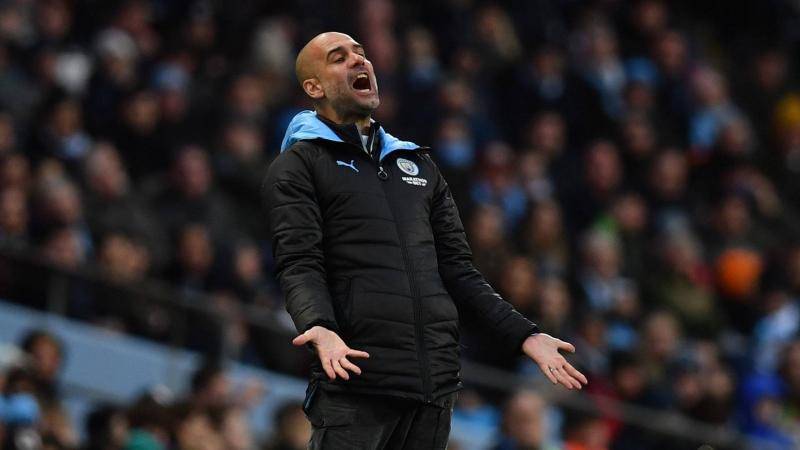
The future of UEFA’s financial fair play (FFP) rules and the credibility of Manchester City’s Abu-Dhabi project face a pivotal day on Monday when the Court of Arbitration for Sport (CAS) delivers its verdict on City’s appeal against a two-season ban from European competitions.
The stakes are appreciably high for City, who have always clung to their denial of any wrongdoing over allegations they deliberately inflated the value of income from sponsors with links to the Abu Dhabi United Group, also owned by City owner Sheikh Mansour, to avoid falling foul of FFP regulations between 2012 and 2016.
In February, UEFA imposed a fine of 30 million euros (£25 million) on City as well as suspending them from European competitions for the next two seasons.
“Today we achieved qualification for the Champions League mathematically,” said coach Pep Guardiola on Saturday after a 5-0 rout of Brighton, cementing them in second-place in the Premier League. “We deserve to be there because we won it on the pitch. Hopefully on Monday, UEFA can allow us to play as this team and these players deserve to.”
The singular prize that has eluded City is the one the Abu Dhabi project cherishes – the Champions League.
Regardless of the outcome on Monday, City will have the chance to pursue their ambitions in August as they resume their Champions League campaign with a 2-1 lead over Real Madrid from the first leg of their last 16 tie.
That could be the last chance for some of City’s biggest names to win the Champions League for the club as the imposition of a two-year ban would adversely impact the club’s finances severely.
Guardiola’s contract runs until the end of the 2020/21 season and the Catalan is unlikely to still be in charge in two years’ time.
City added 93 million euros to their coffers from UEFA prize money and TV rights from last season’s Champions League, with gate receipts and extra sponsorship revenue from Europe’s premier club competition added to that tally.
It would be almost well nigh impossible for the club to lose that level of revenue for two years and still maintain their compliance with FFP regulations without cutting costs on transfer fees and wages, or worse still, selling players.
What’s even more painful for City if their ban were to be upheld is that Manchester United could end up one of the major beneficiaries of their exclusion.
City are currently standing a comfortable second in the Premier League table, but the ban, if withheld, would mean a fifth place will be good enough for the teams in hot pursuit to qualify for the Champions League. United are currently in fifth with Chelsea or Leicester the other sides likely to profit.
That aside, losing such a high-profile case would also cause major embarrassment to the legacy of the City project as it is no secret that one of the major motivations behind the billions invested is to promote a positive image of Abu Dhabi around the world.
The stakes are also high for European football’s governing body, UEFA, as Qatari-owned Paris Saint-Germain have already successfully won an appeal at CAS against UEFA reopening a FFP investigation into the French champions.
The system which limits clubs to not losing more than 30 million euros with exceptions for some costs such as youth development and women’s teams over a three-year period has helped cut debt across European football.
However its detractors point to the fact it maintains the status quo with traditional giants like Barcelona, Real Madrid and Bayern Munich always enjoying bigger budgets thanks to their large global fanbases.
Should UEFA happen to lose another such case, the body’s credibility will be under scrutiny as questions will inevitably arise over how effectively FFP can ever be enforced at the highest level of the game.
The decision from CAS is expected at 0830GMT Monday.
